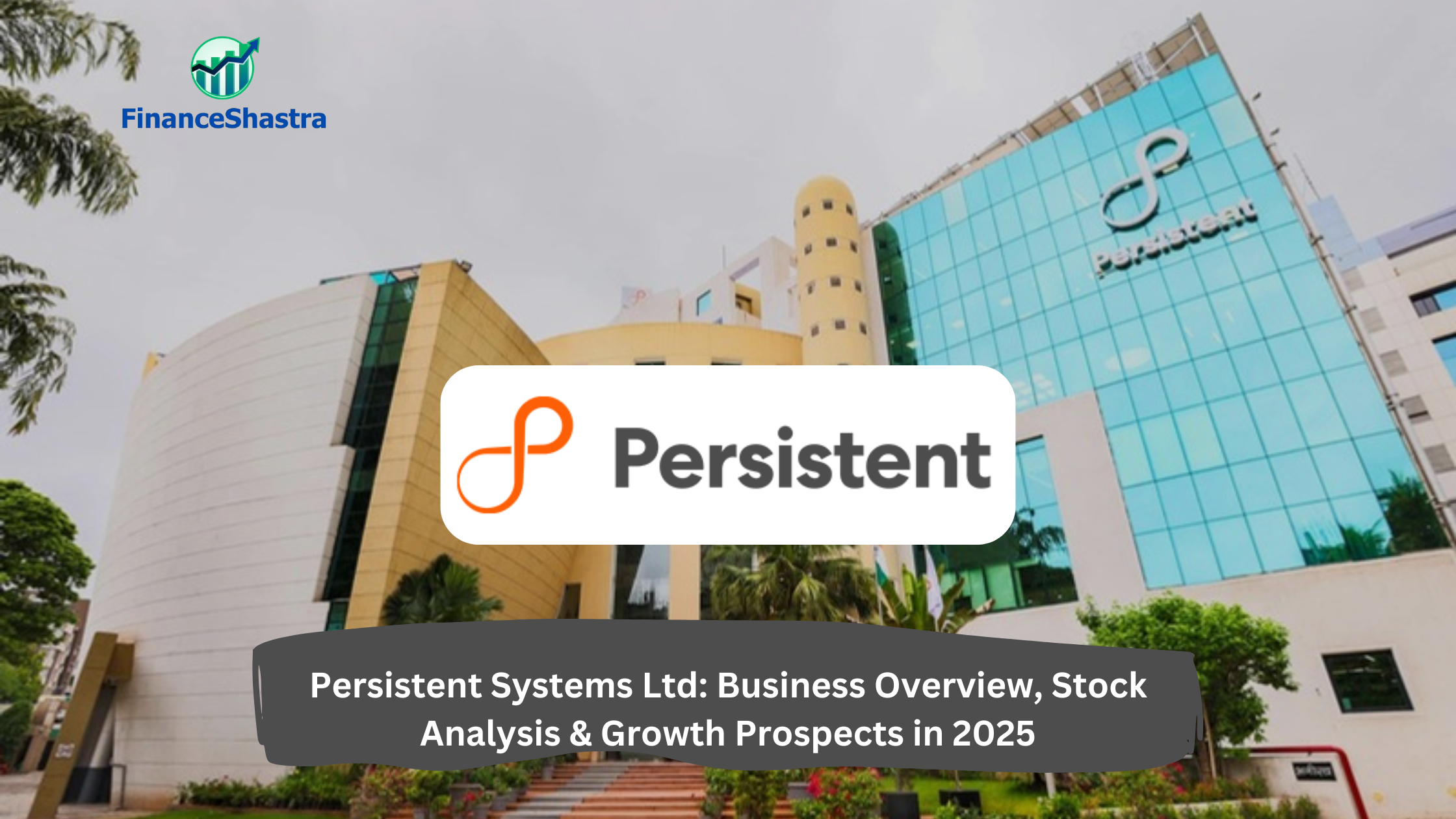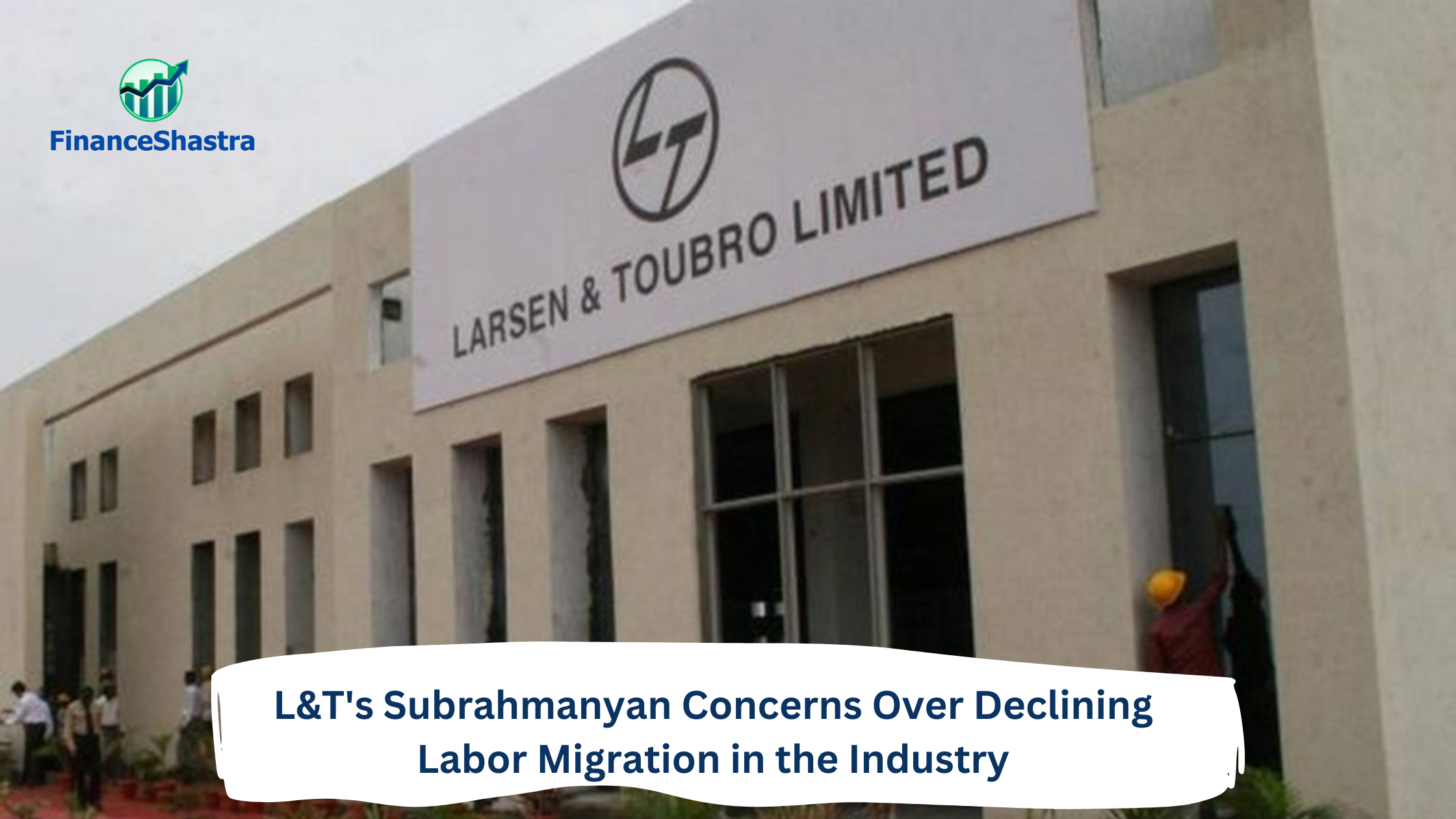Persistent Systems Ltd: Business Overview, Stock Analysis & Growth Prospects in 2025
Business and Industry Overview:
Persistent Systems Ltd is a large technology company based in Pune, India. It helps businesses by offering services like cloud computing, big data analytics, endpoint security, and the Internet of Things (IoT). The company also specializes in software product engineering. These services help businesses improve their technology, security, and digital operations. The company was founded in 1990 by Anand Deshpande. He was a former employee of Hewlett-Packard. Persistent started with a small investment of just $21,000. In 2000, Intel Capital invested $1 million in Persistent Systems. This investment helped the company grow. In 2005, Persistent raised $18.8 million from Norwest Venture Partners and Gabriel Venture Partners. In 2010, Persistent became a public company. It listed its shares on the stock exchanges in India. This allowed the public to buy shares of the company. Persistent started growing even more by acquiring other companies. In 2011, it acquired Infospectrum India, which was based in Nagpur. In 2012, it acquired Openwave’s location business. In 2015, Persistent bought the digital content management business of Akumina. The next year, in 2016, its product division, Accelerite, bought Citrix’s CloudPlatform and CloudPortal Business Manager. In the same year, Persistent started a new service for IBM’s Watson IoT platform. Persistent continued its growth in 2017 by acquiring Parx Werk, a Swiss company. In 2019, it joined Siemens’ MindSphere program to offer Industrial IoT services. That same year, Persistent acquired Youperience, a company that helped businesses use Salesforce. In 2020, Persistent acquired Capiot Software, a software company based in the U.S. In 2021, Persistent bought Sureline Systems, a company that helps with cloud migration. It also acquired Software Corporation International (SCI) and Fusion360 for $53 million. Later in 2021, Persistent also acquired Shree Partners, a company that managed IT and cloud services in New Jersey. Persistent’s growth didn’t stop there. In February 2022, it acquired Data Glove, an American consulting firm, for $90.5 million. In March 2022, it acquired MediaAgility, a cloud computing services company, for $71.71 million. In 2024, Persistent acquired Starfish Associates, a company that develops software for enterprise communications. In September 2024, Persistent also announced its plan to acquire Arrka, a data privacy management firm, for Rs 14.4 crore. Through all these acquisitions, Persistent Systems has become a leader in technology services. The company helps businesses around the world improve their technology, security, and digital solutions. Persistent’s services are used by many industries, such as healthcare, finance, and retail.
The technology services industry is growing very fast. More businesses are using digital solutions like cloud computing, data management, and cybersecurity. This makes the demand for these services rise. In 2022, big Indian IT companies like TCS, Wipro, and Infosys were expected to offer more than 1 lakh jobs because of this high demand. By 2025, the Indian software industry is expected to grow to Rs. 8,62,000 crore (US$ 100 billion). Indian companies are also expanding to other countries. This helps them grow their businesses around the world. The IT and business services market in India is expected to reach Rs. 1,71,796 crore (US$ 19.93 billion) by 2025. In 2024, India’s IT spending is expected to grow by 11.1%. It will reach Rs. 11,89,560 crore (US$ 138.6 billion). Indian IT companies are setting up offices in many countries. These offices, or delivery centres, help them serve clients around the world. The IT and Business Process Management (BPM) industry in India works with many different sectors. These include banking, telecom, and retail. Indian companies are also working with international companies to deliver services all over the world. India’s tech industry is expected to double its revenue by 2030. It is predicted to reach Rs. 43,10,000 crore (US$ 500 billion). India has a lot of talented tech workers. India’s digital skills are better than many other countries in the BRICS group, except China. Japan has also increased its investment in India’s IT sector. From 2016 to 2020, Japanese investments grew four times, reaching US$ 9.2 billion. The Indian government is helping the tech industry grow. In the 2025-26 budget, the government set aside Rs. 2,000 crore (US$ 232 million) to support artificial intelligence (AI). The government also plans to set up a Centre of Excellence in AI for Education. This will have Rs. 500 crore (US$ 58 million) to improve education using AI. India is one of the cheapest countries in the world for data. It costs only Rs. 10 per GB (US$ 0.12). This makes India more competitive in the global market. The government is focusing on important technologies like AI, blockchain, and cybersecurity. It is also encouraging the growth of IT hardware manufacturing. The government has a scheme called the production-linked incentive to support this growth. In summary, India’s technology services industry is growing quickly. India is becoming a leader in the global tech market. There are more job opportunities, rising investments, and strong government support.
Latest Stock News:
Persistent Systems received a warning from the National Stock Exchange (NSE) because the company did not inform the stock exchanges on time about the resignation of a senior management person. According to the rules, the company should have told the stock exchanges within 24 hours of the resignation. They should also have submitted the resignation letter within 7 days. Persistent Systems missed these deadlines. As a result, the NSE sent a warning. They told the company to be more careful in the future and follow the rules. Persistent Systems replied that this mistake will not affect its business. They promised to follow the rules better in the future.
On April 1, 2025, Persistent Systems’ stock dropped by up to 5%. Other big IT companies like Infosys and TCS also saw their stock prices fall. The drop happened before U.S. President Donald Trump’s “Liberation Day” announcement. This announcement caused changes in markets all over the world. Even though the stock price dropped recently, Persistent Systems had strong performance over the past year. In its latest report for the third quarter, which ended on December 31, 2024, the company reported a net profit of ₹373 crore. This was a 30.4% increase compared to the same period last year. This growth happened because of the company’s focus on AI-led services and platform-driven solutions.
Even with the recent drop, Persistent Systems’ stock has gone up by about 80.37% over the past year. This shows that the company is doing well overall. But stock prices can go up and down quickly. Many factors, like market conditions and the company’s performance, can affect them. Investors should research carefully or speak to financial advisors before deciding to invest in any stock.
Potentials:
Persistent Systems has clear plans for the future. The company wants to focus on new technologies. These include Artificial Intelligence (AI), Cloud Computing, and the Internet of Things (IoT). AI helps machines make decisions. Cloud Computing allows businesses to store data online. IoT connects devices to the internet for better communication. The company also wants to grow in other countries. They are looking at markets in the U.S. and Europe. These areas have big opportunities. By improving their services, Persistent hopes to attract more customers. They believe better AI and cloud services will help them stand out. Persistent Systems will also buy other companies. This will help them learn new skills. It will also allow them to enter new markets. By buying other companies, they can improve what they already do. The company will keep improving its current services. These services include helping businesses move to the cloud and update their technology. This will help them stay competitive and meet customer needs. The company also knows it is important to keep its workers skilled. They will offer training programs to help employees learn the latest technologies. This will help workers stay up-to-date and be ready for new challenges. In short, Persistent Systems wants to grow. They plan to use new technologies, expand in other countries, buy companies, improve current services, and train employees. Their goal is to stay ahead in the tech world and meet customer needs.
Analyst Insights:
- Market capitalisation: ₹ 82,959 Cr..
- Current Price: ₹ 5,318
- 52-Week High/Low: ₹ 6,789 / 3,232
- P/E Ratio: 62.9
- Dividend Yield: 0.49%
- Return on Capital Employed (ROCE): 29.2%
- Return on Equity (ROE): 24.0%
Persistent Systems has been growing steadily. In the last five years, its profits have increased by 27% each year. This is a good sign. It shows that the company is doing well and making more money each year. This kind of growth is attractive to investors. The company also has a solid return on equity (ROE) of 24%. This means it is making good use of the money invested by its shareholders. A high ROE means the company is effective at turning its investments into profits. Investors like this because it shows the company is using its resources well. Another reason to like Persistent Systems is that it is working in fast-growing fields like artificial intelligence (AI), cloud computing, and digital transformation. These are important areas, and many businesses are looking for solutions in these fields. Because of this, Persistent Systems could see more growth in the future. The company also has partnerships with big names like Salesforce and AWS. These partnerships can help the company get more business and reach new customers. Persistent Systems also pays a dividend to its shareholders. This means the company gives a part of its profits back to investors. The company has been paying about 37.5% of its profits as dividends. While this is not a very high dividend, it still provides regular income to investors. People who own the stock can earn some money even if they don’t sell their shares. However, there is a downside. The stock price of Persistent Systems is high. The company has a price-to-earnings (P/E) ratio of 62.9. This is much higher than other large companies like TCS (P/E of 26.3) and Infosys (P/E of 23.3). The P/E ratio tells you how much investors are willing to pay for each rupee of the company’s earnings. A high P/E ratio means that investors are expecting the company to grow a lot in the future. But it also means that the stock is more expensive. If the company doesn’t meet these high growth expectations, the stock price might drop. Because of this, the stock might be overvalued right now. If the company doesn’t grow as fast as expected, it could be risky for new investors. Even though the company has great growth potential, its high stock price makes it less attractive at the moment.
In conclusion, Persistent Systems is a strong company with good growth prospects. It is doing well in its business and is involved in fast-growing industries. It has a good return on equity and pays a solid dividend. However, its high stock price makes it a bit risky. If you already own the stock, you can hold it and see if it continues to grow. But if you are thinking of buying more, you should be cautious because the stock is expensive right now. Therefore, the recommendation is to hold the stock for now.


